
Allotinus is a genus of butterflies in the family Lycaenidae. The genus was erected by Cajetan Felder and Rudolf Felder in 1865. The members (species) of this genus are found in the Indomalayan realm.
Apeplopoda is a genus of tiger moths in the family Erebidae. The genus was erected by Watson in 1980.
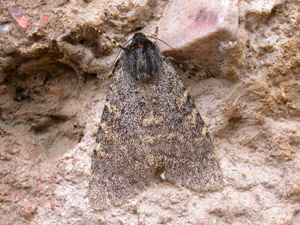
Carcinopyga is a genus of tiger moths in the family Erebidae. The genus was described by Felder in 1874.
Cyme is a genus of moths in the family Erebidae. The genus was described by Felder in 1861.
Dolgoma is a genus of moths in the family Erebidae. The genus was described by Moore in 1878.
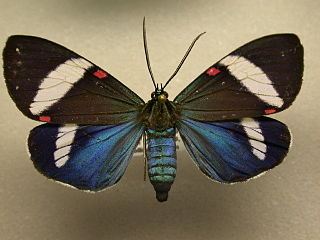
Hypocrita is a genus of tiger moths in the family Erebidae. The genus was erected by Jacob Hübner in 1807.

The Aganainae are a small subfamily of moths in the family Erebidae. The adults and caterpillars of this subfamily are typically large and brightly colored, like the related tiger moths. Many of the caterpillars feed on poisonous host plants and acquire toxic cardenolides that make them unpleasant to predators. Like the closely related litter moths, the adults have long, upturned labial palps, and the caterpillars have fully or mostly developed prolegs on the abdomen. The Aganainae are distributed across the tropics and subtropics of the Old World.
Inopsis is a genus of moths in the family Erebidae. The genus was described by Felder in 1874.
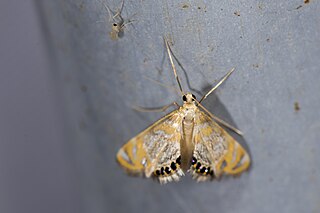
Nymphicula is a genus of moths of the family Crambidae.

Abacena is a genus of moths of the family Erebidae.
Azeta is a genus of moths in the family Erebidae.

Calesia is a genus of moths of the family Erebidae. The genus was erected by Achille Guenée in 1852.
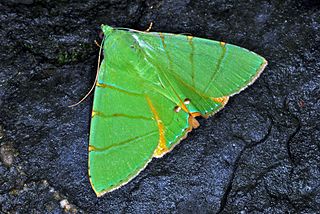
Eulepidotis is a genus of moths of the family Erebidae erected by Jacob Hübner in 1823.

Micromorphe is a genus of tussock moths in the family Erebidae. The genus was erected by Felder in 1874.

Asota is a genus of moths in the family Erebidae first described by Jacob Hübner in 1819. Species are widely distributed throughout Africa, India, Sri Lanka, Myanmar, the Malayan region and tropical parts of the Australian region.
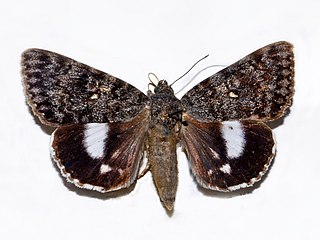
Catocala actaea is a moth of the family Erebidae first described by Rudolf Felder and Alois Friedrich Rogenhofer in 1874.
Asura congerens is a moth of the family Erebidae first described by Felder in 1874. It is found in India's north-western Himalayas and Sikkim.
Cisthene deserta is a moth of the family Erebidae. It was described by Felder in 1868. It is found in North America, where it has been recorded from Utah and California.
Sthenognatha flinti is a moth in the family Erebidae. It was described by Todd in 1982. It is found in the Dominican Republic.
Dasychira moerens is a moth of the family Erebidae first described by Felder in 1894. It is found in South India and Sri Lanka.








